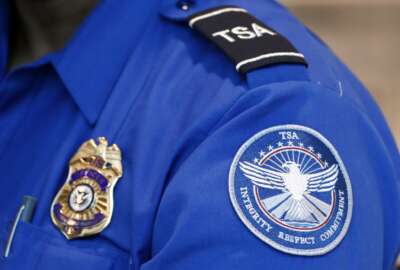
Insight By Bloomberg Government
Air Force Taps GSA to Fast-Track Cloud Platform Buy
The Air Force is partnering with the General Services Administration on a fast-track buying procedure to acquire a cloud-based development platform for artifici...
This content is provided by Bloomberg Government.
The Air Force is partnering with the General Services Administration on a fast-track buying procedure to acquire a cloud-based development platform for artificial intelligence and “internet of things” applications.
In a solicitation posted Jan. 8, an Air Force joint program led by AFWERX, its in-house technology incubator, joined by the Air Force Research Lab and Air Force Space and Missile Systems Center, announced it was seeking a commercially available development-to-operations (DevOps) platform-as-a-service (PaaS) solution.
The platform will help the Colorado-based Air Force Space Command accelerate the process of building, testing, and deploying software and ingesting new data sources in an effort to improve Air Force tracking of satellites and other objects in orbit, according to the posting.
To streamline the process, the Air Force has tapped GSA’s Federal Systems Integration Management Center (FEDSIM) to help it navigate an accelerated acquisition method known as a “commercial solutions opening,” or CSO.
“Given the availability of innovative and commercial solutions in the market, the Commercial Solutions Opening (CSO) solicitation methodology was selected as the acquisition strategy to maximize competition from both non-traditional and traditional government industry partners,” a GSA spokesperson wrote in a statement to Bloomberg Government.
DIU PAVES THE WAY FOR CSOS
The Defense Innovation Unit (DIU), the Pentagon’s Silicon Valley-based outpost, pioneered the CSO as a way to connect government with nontraditional technology suppliers. Like other transaction agreements (OTAs), CSOs enable agencies to bypass the traditional solicitation process by negotiating small contracts to support limited prototyping projects. Instead of a months-long, multistage acquisition process, a white paper and technical demonstration is often all a company or consortium needs to submit before the government can enter into a contract.
From fiscal 2016 through 2018, DIU used CSOs to establish pilot programs valued at a combined $249 million with more than three dozen commercial technology companies.
After a bruising controversy in 2018 in which the Pentagon was forced to scale back and then terminate a $950 million follow-on contract to REAN Cloud LLC, the Pentagon issued new guidelines requiring sign-off from senior leadership on purchases greater than $100 million.
In November, DIU opened a new round of CSO funding for a period of five years. To avoid the problems it faced with REAN Cloud, this time the solicitation specified that the government and its company partners may “negotiate a follow-on production contract or agreement, without the need for further competition” – in effect, paving a way to shift promising projects directly from prototype to production.
GETTING INTO THE CSO GAME
DIU isn’t the only government organization using CSOs. In 2018, the Defense Intelligence Agency, Naval Sea Systems Command, Army Materiel Command, and the Department of Homeland Security all launched their own CSO programs. FEDSIM also announced its intent to become a broker to help other agencies with commercial acquisitions in May.
“GSA is evaluating the use of Commercial Solutions Openings as another acquisition method for innovative and commercial solutions,” the agency told Bloomberg Government. “GSA has developed this pilot program to explore how private sector commercial acquisition approaches, outside the normal Federal Acquisition Regulations requirements, can be used as a viable, more efficient, and more effective procurement solution.”
The Air Force first partnered with FEDSIM in August to choose a commercial provider for “technology accelerator services” that will identify and recruit emerging dual-use technology companies operating in the education and training, autonomous systems, artificial intelligence, and space technology industries.
The January CSO for DevOps PaaS represents the service’s deepest collaboration to date. According to the solicitation, the platform “will address multiple use cases for the national security space enterprise,” outlining requirements in four key areas:
- Big data analytics: Solutions should be able to connect to potentially millions of geographically dispersed sensors and process incoming data in near real time.
- Artificial intelligence/machine learning: Vendors should have a track record of implementing AI/ML learning programs to drive decision making.
- Integration with legacy software: Vendors should be experienced in integrating PaaS tools with legacy tools and programming languages.
- Flexibility of deployment: Solutions should be portable across multiple environments, either in on-premises servers or in the cloud.
Interested parties have until Jan. 18 to submit a five-page brief describing their technology, its ability to meet the Air Force’s requirements, and their company’s financial stability. Promising submissions will be invited to present a product demonstration via videoconference the week of Feb. 4.
Chris Cornillie is a federal market analyst with Bloomberg Government.
Copyright © 2024 Federal News Network. All rights reserved. This website is not intended for users located within the European Economic Area.
Related Stories





